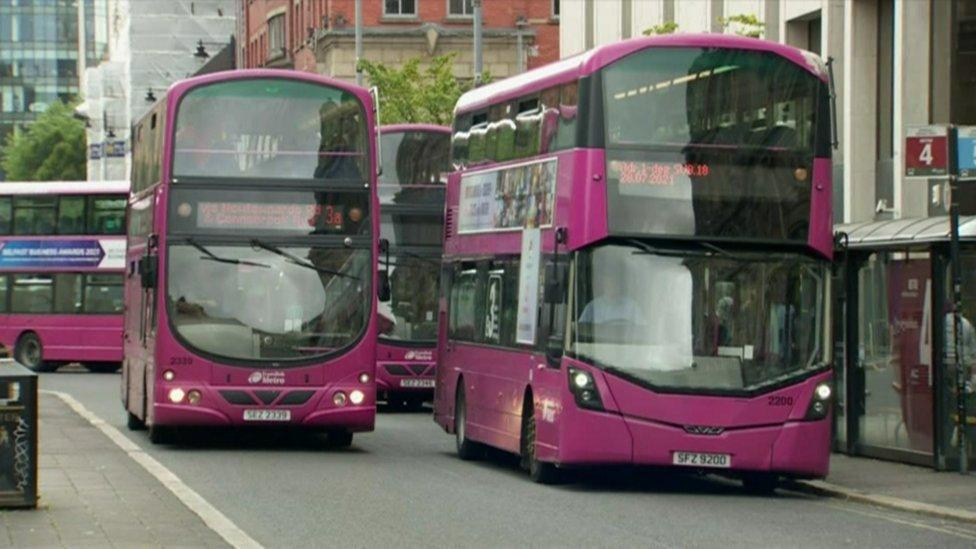NI bus and rail strike: Pubs and bars fear trade will be hit
- Published
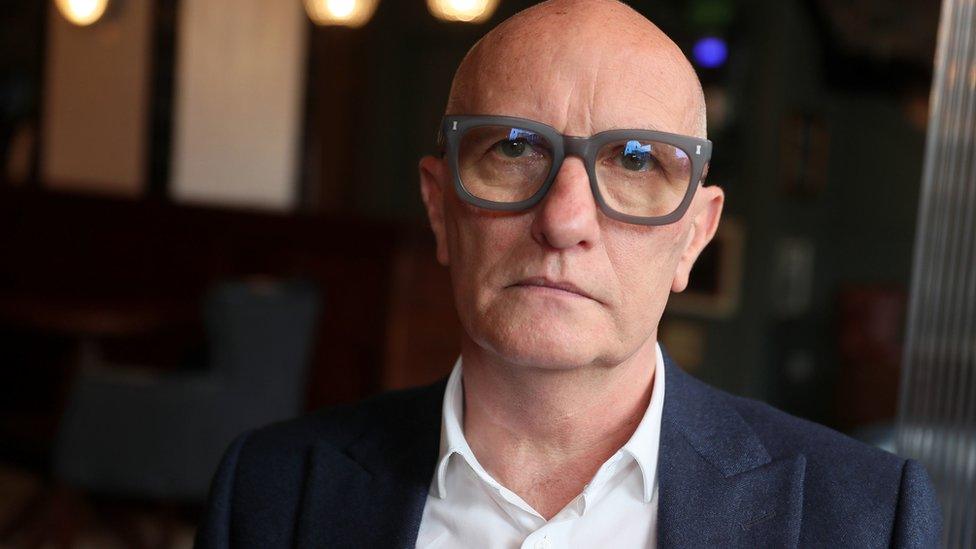
Colin Neill has urged Northern Ireland Secretary Chris Heaton-Harris to intervene
A public transport strike in the run up to Christmas, will cause "extensive damage" to the hospitality trade, a representative group has warned.
Colin Neill of Hospitality Ulster said the strike which has been called from Friday 1 December at 00:01 GMT, "couldn't come at a worse time".
Unite, GMB and Siptu unions voted in favour of the strike over a possible pay-freeze for Translink workers.
Mr Neill urged the Northern Ireland secretary to intervene.
"It couldn't come at a worse time, we have seen a hospitality industry that has struggled to get back on its feet for all sorts of reasons since Covid and this is our busiest time of the year," he told BBC News NI.
"To be hit by this now, really will do damage.
"We have obviously appealed to the unions about the timing, but also it's a call to the secretary of state - get round the table and negotiate with the unions.
"These people just can't be ignored, they have a justifiable claim."
Boyd Sleator, co-founder of Free the Night, a group aimed at improving Northern Ireland's nightlife, said Translink was "under incredible pressure and the secretary of state does need to stand up and address this".
"Bus drivers are frontline workers, they are part of our late night creative economy by shipping people in and out of our cities," he added.
"They deserve the respect and they deserve a pay rise."
Previously, one union leader said members had no alternative but to strike due to attempts to "instigate a pay freeze".
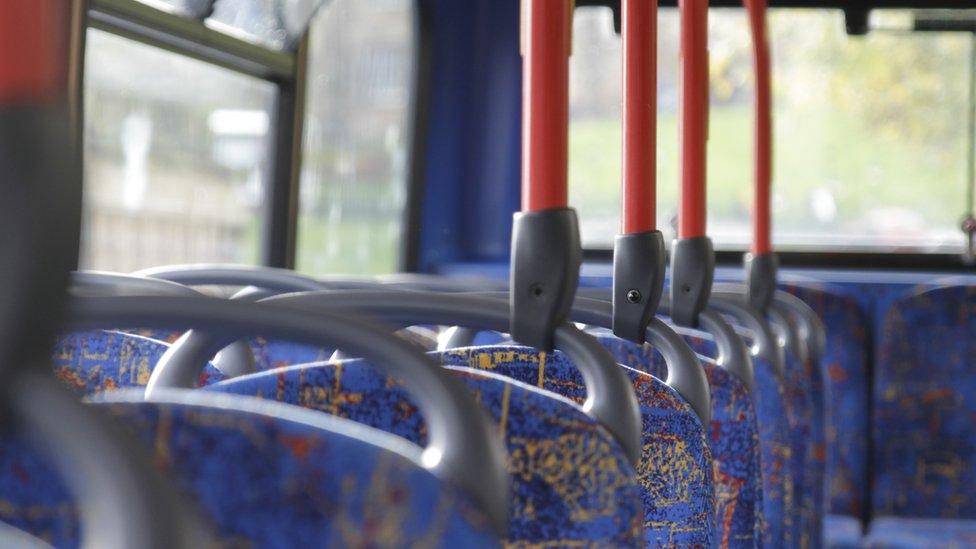
Strike action will affect Ulsterbus, Metro and Glider services from 00:01 on Friday 1 December.
Translink said it did not receive a budget for a pay offer from the Department for Infrastructure and therefore could not make a pay offer at this time.
Sharon Graham, general secretary of Unite, called on Mr Heaton-Harris to "properly fund public transport in order to avoid what will be debilitating and disruptive strikes".
All three public transport unions said members had also agreed to industrial action short of strike.
'Series of strikes'
Albert Hewitt, Unite's regional officer for Translink, said it was the first of a series of planned strikes over the coming weeks.
"Unless management returns to the negotiating table with an offer of a real-terms pay increase, our members will be left with no alternative but to escalate industrial action to defend their incomes," he added.
Peter Macklin, GMB's regional organiser, said unions would meet in the coming days "to agree a schedule and strategy for strike action to secure an improvement to members' pay".
Niall McNally, Siptu senior organiser, added that the union recognised the disruption a public transport strike would cause but added members could accept a pay-freeze.
In a statement, Translink said: "Ultimately this issue needs to be resolved for many public sector workers at the NI Executive level."
It added that it "understood and recognised" the concerns that led to the strike but urged workers "not to rake action which could further exacerbate the financial pressures on Translink, impact on school children and damage the livelihoods of many businesses in the retail and hospitality sectors who depend on the busy Christmas period".
"We remain committed to working with our colleagues in the trade unions to avoid disrupting services that so many of our passengers rely on," a spokesperson added.
The industrial action by public transport workers is the latest in a number of strikes in Northern Ireland.
At the start of November, school support staff across four unions walked out in strike over failure to reform their pay and cuts to the education budget.
The 48-hour strike caused the closure of four special schools and unions said it would be one of the biggest strikes among non-teaching unions in years.
- Published22 November 2023
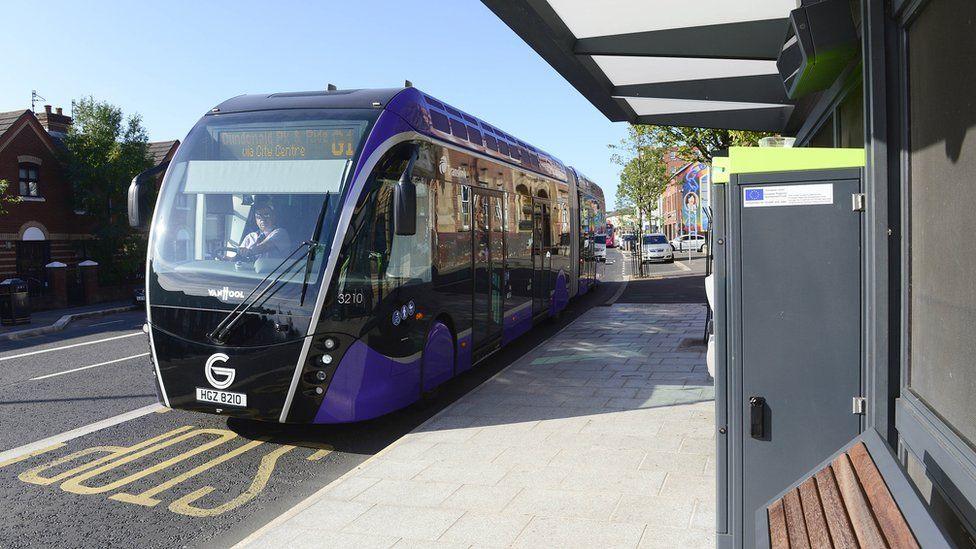
- Published15 November 2023
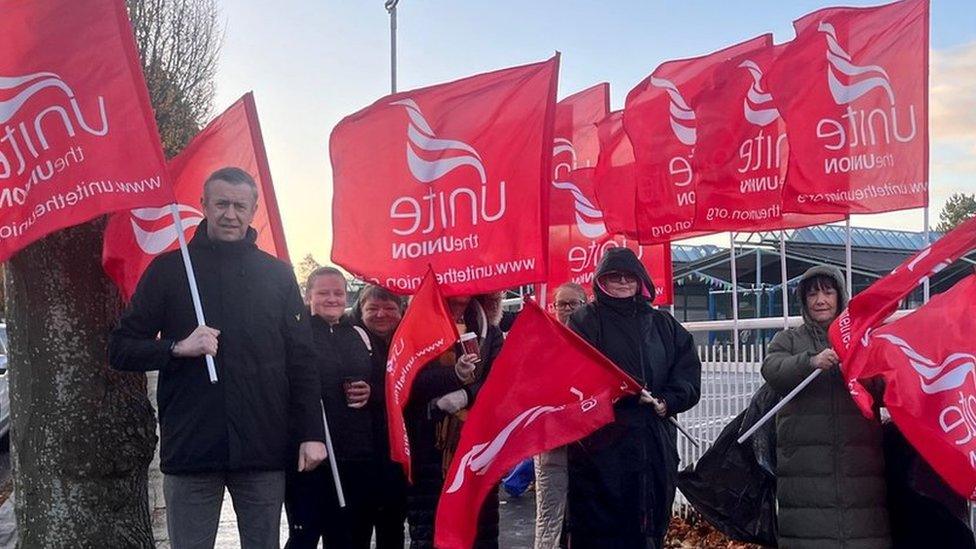
- Published9 November 2023

- Published25 October 2023
